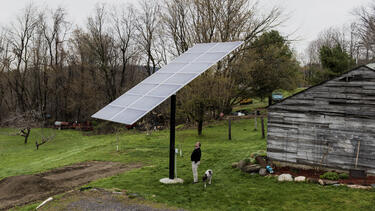Sustainability
Renewable Energy Is Easier Than Ever to Build—and Harder to Talk About
Advances in technology and a maturing development ecosystem have made renewable energy more economical, less risky, and increasingly rewarding for landowners, says Reid Buckley ’89, a partner at Orion Renewable Energy Group. But it has also become more politicized.

Maintaining Momentum on Climate Change
Tyler Van Leeuwen ’14 of Shell explains explains how his internal skunkworks team helps move Shell toward its decarbonization goals.
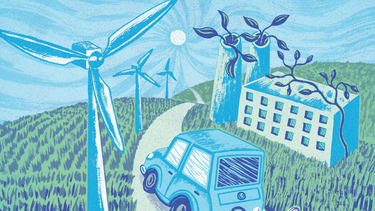
To Tackle Plastics Pollution, Embrace a Circular Economy
To cut down on plastics pollution, says Matt Kopac ’09, sustainable business and innovation manager at Burt’s Bees, we need a fundamentally different approach to sustainability.

Transforming Energy Infrastructure
We talked to Elliott Mainzer ’98, who recently began a role overseeing California’s electrical grid, about the progress he’s witnessed and the challenges that remain in creating a fully sustainable energy network.

A Climate for Change
Judy Samuelson ’82, executive director of the Aspen Institute’s Business and Society Program, explores whether this cataclysm will trigger lasting change.
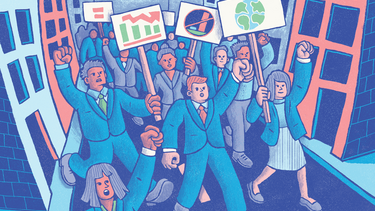
Can We Make Recycling Work?
The ubiquitous blue bin for single-stream recycling obscures a set of tradeoffs and challenges, including contamination that complicates processing and lowers the value of recyclable materials.
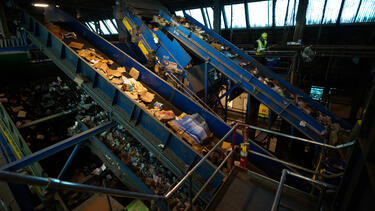
Faculty Viewpoints: Will COVID-19 Set Us on a More Sustainable Path?
In the short term, COVID-19 has brought about what activists and governments haven’t been able to achieve: a sharp drop in carbon emissions. What does the pandemic mean for the longer-term trajectory of efforts to remake our economy in a sustainable way?

Consumption, Numbers and Time: The Arithmetic of Sustenance
On the 50th anniversary of the first Earth Day in 1970, Yale SOM’s Shyam Sunder writes that humankind must grapple with a fundamental threat to our survival.

Can Jeff Bezos’s $10 Billion Climate Pledge Make a Difference?
We asked Todd Cort, co-director of the Yale Center for Business and the Environment and an expert on sustainable finance, if Bezos’s money was a significant step toward a solution.
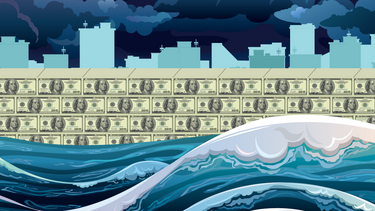
Researchers Propose New Method to Hedge against the Risk of Climate Disaster
Markets could be a huge part of mitigating climate risk. A proposal from Yale finance faculty seeks to make that a reality.

For a Path to a Decarbonized Economy, Look to the States
Robert Klee, a lecturer at Yale and the former commissioner of the Connecticut Department of Energy and Environmental Protection, says that state-level approaches to the climate crisis provide a roadmap for a 10-year, trillion-dollar effort to put the U.S. on a path to decarbonization.
